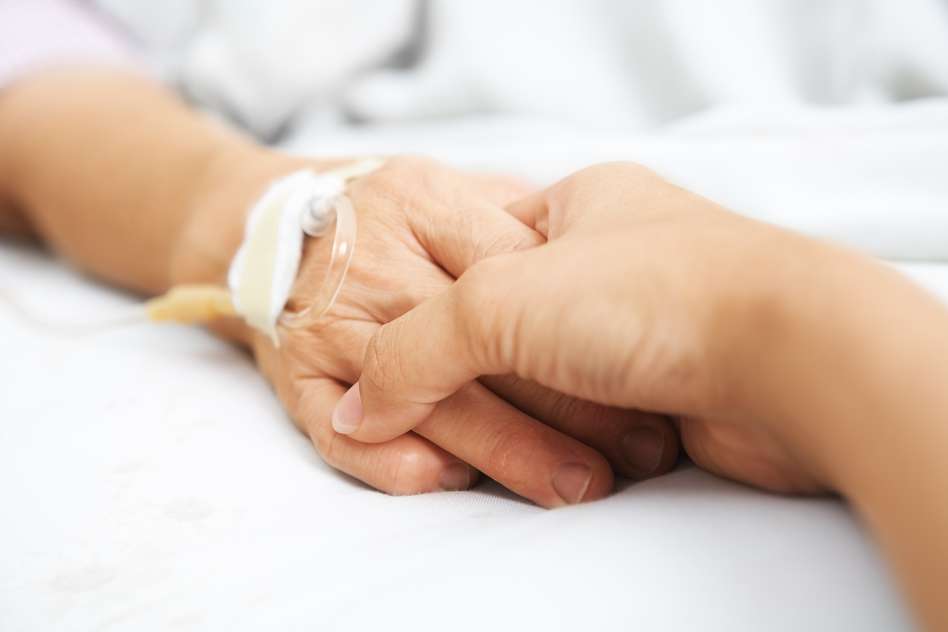medical negligence
Alleged delays in diagnosis and treatment of sepsis following gallbladder surgery

Alison* suffered sepsis after a laparoscopic cholecystectomy (keyhole surgery to remove her gall bladder). Four years on, she continues to suffer from the effects of sepsis and remains unable to return to full-time work as a dental nurse.
Alison was diagnosed with gallstones. She underwent keyhole surgery to remove her gallbladder at a Private Hospital. The operation appeared to go well, and Alison was discharged home the following day.
A few days later, Alison began to feel unwell and was unable to get out of bed. She felt shaky and sick, with worsening tummy pain and was developing bruising on her abdomen.
On the 5th day after the operation, Alison called the hospital twice but was told to stay at home. As she continued to deteriorate, Alison’s husband called the hospital a third time sensing a desperate need for medical review and she was admitted to hospital later that afternoon for observation.
Alison’s observations were noted in her records.
The doctor did not follow the hospital’s Sepsis Screening and Action Tool or consider a possible diagnosis of sepsis at this time even though Alison presented with classic signs of sepsis, including a high temperature, increased heart rate and increased white blood cell count. She had recently undergone surgery which was a clear potential cause of infective complications, and her condition continued to deteriorate.
The doctor noted that she had pain in her abdomen and chest, a high temperature and abdominal bruising, but concluded that there was “probably not a serious abdominal complication”. An ultrasound scan was arranged for the following morning and the Consultant noted “NAD” – no abnormality detected.
An ultrasound scan is potentially insufficient for investigating abdominal causes of infection, and a CT scan would have been more suitable for urgently showing developing infection and its source.
Alison continued to deteriorate and the bruising on her abdomen spread. She was bedbound and becoming increasingly anxious and worried about her deterioration.
The next day (the 6th day after the operation), Alison was given antibiotics.
However, no clinical review at all was undertaken that day.
On the 7th day after the operation, Alison underwent a CT scan. The scan showed infection, however Alison’s doctor was reassuring that it wasn’t anything serious.
On the 8th post-operative day (and) three days after her re-admission, Alison collapsed and one of her keyhole wounds burst.
It was not until four days after her re-admission to hospital (and 9 days after the original surgery) that Alison underwent surgery to drain what was recorded as a “huge abscess”.
Alison said “we really had to push for something to be done; I had been in hospital for days and my condition was getting worse rather than better.”
Within a few days, Alison began to deteriorate again and telephoned her family, fearing that she was going to die. She was transferred to an NHS Hospital by blue light where a team were waiting for her, for further investigation and sepsis management. Ongoing infection was identified. She underwent a further operation to drain the infection, with two additional incisions to the sides of her abdomen. Alison required abdominal drains and a stay in the High Dependency Unit. She had a further operation after this, as well as procedures to assist with draining and managing the infection.
After a few weeks, Alison was discharged. Her primary wound was left open and her recovery was slow. Having thrived in her profession as a dental nurse for many years, Alison has since been unable to return to full-time work, as a result of the ongoing difficulties and physical fatigue since the sepsis infection. The distressing events and fear of death, and the huge impact that this has had on her daily life have caused Alison to suffer from PTSD and major depression, as well as health related anxieties.
When Alison asked us to investigate her potential claim we had two main concerns - the delay between her re-admission to hospital where she clearly demonstrated signs and symptoms of sepsis; and whether the second operation sufficiently cleared the infection so as to halt further deterioration. If sepsis had been identified and adequately treated earlier, it is likely that Alison would have avoided her traumatising collapse, transfer to an NHS hospital and the High Dependency Unit, and the multiple additional operations and drains, maximising her chances of a full recovery.
Raising awareness of sepsis, and of the importance of timely diagnosis and treatment, is a cause very close to Alison’s heart. She said “I strongly support World Sepsis Day and I just don’t want anyone to suffer like I have, or for their families to go through what mine had to.”
Katheryn Riggs, Associate in the Medical Negligence team at Tees said “The consequences of delaying the diagnosis and treatment of sepsis can be fatal; 20% of deaths worldwide are associated with sepsis. Time is of the essence to halt the patient’s deterioration and to maximise the best chances of recovery, and it is vital that doctors and medical staff remain alert to this. We are helping Alison to get answers for what went wrong and are seeking to support in her ongoing physical and psychological recovery. The World Sepsis Day campaign on 13 September is committed to giving sepsis the attention it needs, to help reduce the number one cause of preventable deaths worldwide.”
Sepsis negligence claims solicitors
Professional guidelines on the diagnosis and treatment of sepsis are very clear, but mistakes during treatment can and do happen. Unfortunately, medical errors can have serious and devastating consequences for patients and their families.
Sepsis must be diagnosed and treated quickly. Any delay or problems with treatment could have serious implications and could be fatal– so doctors should recognise the warning signs of sepsis and offer the right treatment.
Sepsis negligence claims normally focus on either:
- A delayed diagnosis of sepsis – you might have a claim if your doctor didn’t spot the signs of sepsis early enough and this made your condition worse
- A misdiagnosis of sepsis – you might have a claim if your doctor misinterpreted your symptoms, and this caused a delay in your treatment which made your condition worse.
If you or a loved one has suffered from sepsis and you are worried that the care was not good enough, we can help. Our specialist sepsis negligence claims solicitors understand what you’re going through, and we can help you get answers about your care. We’ll listen to your experiences, and help you find out what happened throughout your treatment.
*our client’s name has been changed
Call for a FREE initial consultation on 0800 013 1165
Alternatively, you can fill out our enquiry form and we will let you know how we can help. We can also visit you at your home if you wish.
Our medical negligence lawyers are based in:
- Cambridgeshire: Cambridge
- Essex: Brentwood, Chelmsford and Saffron Walden
- Hertfordshire: Bishop's Stortford & Royston
But we can help you wherever you are in England and Wales.
Chat to the Author, Katheryn Riggs
Associate, Medical Negligence, Bishop's Stortford office
Meet Katheryn
- Areas of expertise
- Accreditations
- Testimonials
A - Bishop's Stortford
'We went to Tees for help with a medical negligence case, they provided amazing support, understanding and care. Katheryn explained the process of our case, she’s been absolutely amazing, not only in an exceptionally professional way but in a personal and empathetic way as well. The result found us very satisfied'
Miss Lauren Addicott
Hove
I came to Tees with no knowledge of how a medical negligence claim would work or the machinations of the compensation system. My assigned paralegal, Katheryn Rigg, was consistently helpful, clear, available and empathetic. I am very pleased with not only the end result, but with how swiftly the process was completed.
Mr and Mrs Robin Lincoln
Bishop's Stortford
Tim Deeming took me through the settlement process step by step and was a master tactician in the final negotiation, who I was proud to have represent me. Katheryn Riggs gave me all the support to file the claim. Tees draw on their vast experience to bring the very best medical experts to the table.



